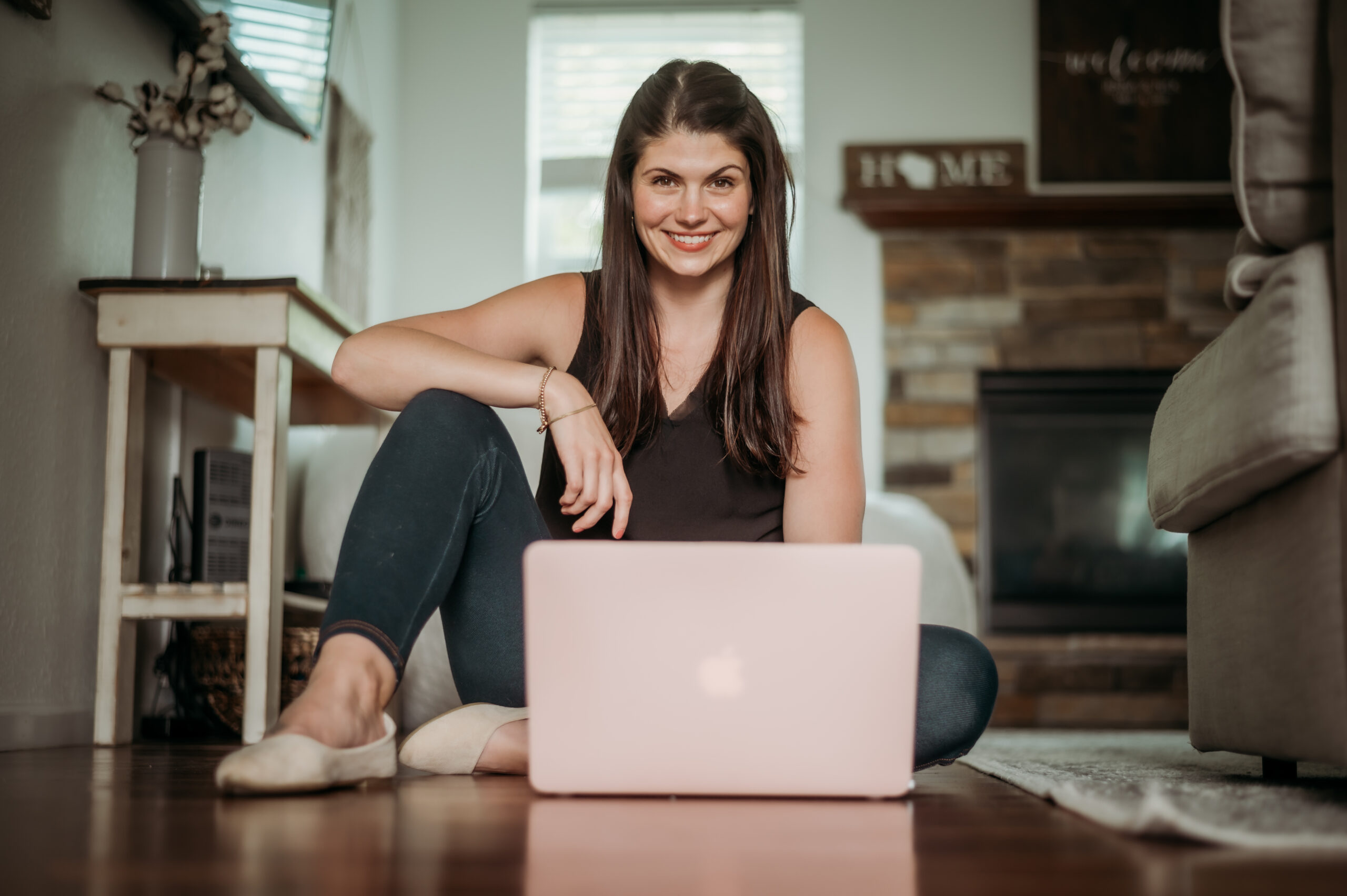How to Practice Self-Compassion During Anxiety Episodes
September 3, 2024
Dealing with anxiety is challenging. The understatement of the century. Anxiety can feel overwhelming, and to make matters even worse, it’s easy to become your own harshest critic during these episodes. However, in my experience as someone who has struggled with OCD and anxiety since I was a kid and has been helping others since 2008, I’m here to tell you that practicing self-compassion can make a HUGE difference.
Let me set the record straight: Self-compassion isn’t about ignoring your anxiety or pretending it doesn’t exist; it’s about acknowledging your feelings and treating yourself with the same kindness and understanding you would offer a friend.
I know this is easier said than done though, so let’s look into some practical ways to develop self-compassion during anxiety episodes.

What is Self-Compassion?
First, let me break down exactly what I mean when I say self-compassion. Self-compassion involves three main components: self-kindness, common humanity, and mindfulness. Self-kindness means treating yourself with the same care and understanding you would extend to a loved one. Common humanity is recognizing that suffering and imperfection are part of the shared human experience. Finally, mindfulness involves being aware of your emotions without judgment.
Now, let’s talk about how we can practice self-compassion during anxiety episodes.
Recognize and Acknowledge Your Anxiety
The first step in practicing self-compassion is to recognize and acknowledge your anxiety. This is similar to what I talk about in Acceptance and Commitment Therapy. It’s important to understand that anxiety is a normal response to stress. Instead of berating yourself for feeling anxious, acknowledge your feelings. Say to yourself, “I am feeling anxious right now, and that’s okay.”
Talk to Yourself Like a Friend
Next, imagine how you would talk to a close friend who is experiencing anxiety. You wouldn’t criticize them or belittle their feelings; instead, you would offer support and understanding. Try to speak to yourself in the same way. Use gentle and encouraging words. For instance, you might say, “You’re doing the best you can right now, and it’s okay to feel anxious. This too shall pass.”
Practice Mindfulness
Next, it can be helpful to try a mindfulness exercise. I know this is easier said than done, but around here? We do the hard things. Mindfulness can help you become more aware of your thoughts and feelings without becoming overwhelmed by them. When you notice anxiety creeping in, take a few deep breaths and focus on the present moment. Pay attention to your breathing, the sensations in your body, and the sounds around you. This practice can help ground you and prevent your mind from spiraling into worst-case scenarios.

Embrace Common Humanity
I touched on this briefly above but one of the most comforting aspects of self-compassion is the recognition that you are not alone in your struggles. Everyone experiences anxiety at some point in their lives. By embracing common humanity, you can feel more connected to others and less isolated in your experiences. Reach out to friends, family, or support groups to share your feelings. Knowing that others understand what you’re going through can be incredibly reassuring.
Use Physical Gestures of Kindness
Physical gestures can have a powerful impact on your emotional well-being. Simple acts like placing a hand over your heart, giving yourself a hug, or gently massaging your temples can provide immediate comfort. These gestures signal to your brain that you are safe and cared for, which can help reduce feelings of anxiety, even if we consciously know the reason we are doing it.
Challenge Self-Critical Thoughts
As I’m sure you know, anxiety often brings along a chorus of self-critical thoughts. These thoughts can be harsh and judgmental, making it even harder to cope with anxiety. When you notice these thoughts, try to challenge them. Ask yourself if you would say the same things to a friend. Often, we are much kinder to others than we are to ourselves. Imagine how you would respond if a loved one came to you with the same concerns. This can help you adopt a more compassionate perspective.
Replace self-critical thoughts with more compassionate and realistic ones. For example, instead of thinking, “I’m weak for feeling this way,” try, “I am strong for facing these feelings and seeking ways to cope.” This shift in thinking acknowledges your effort and resilience rather than undermining your experience.
It’s important to recognize that this process gets easier with practice. Initially, it might feel forced or insincere to replace negative thoughts with positive ones. However, over time, these compassionate thoughts can become more natural.
Seek Support When Needed
Lastly, sometimes, self-compassion means recognizing when you need extra support. There’s no shame in reaching out for help. Talk to a trusted friend, family member, or mental health professional. Seeking support is a sign of strength, not weakness. Professional guidance (or DIY options like my OCD and Anxiety Recovery Blueprint) can provide you with additional strategies and tools to manage anxiety effectively.

Putting It All Together
Practicing self-compassion during anxiety episodes involves recognizing your feelings, treating yourself with kindness, and understanding that you are not alone. It’s about creating a supportive environment for yourself and seeking help when needed. By incorporating these practices into your life, you can build resilience and navigate anxiety with greater ease. I’m not saying it’s going to be easy, but I am saying you can do hard things (and the hard things do get easier).
And hey – if you’re ready to kick anxiety to the curb once and for all (and are ready to roll up your sleeves and do the inner work to get there), I would love to invite you to check out my OCD and Anxiety Recovery Blueprint, where I walk through evidence-backed strategies and support for treating anxiety and OCD. Trust me, it’ll change your life if you let it.
Remember, self-compassion is a journey, not a destination. Be patient with yourself as you practice these techniques. Over time, you’ll find that self-compassion can become a powerful tool in your arsenal against anxiety. You are worthy of kindness, understanding, and support, especially from yourself.
most popular episodes
Love my podcast?
Episode 112: Postpartum OCD and False Memory OCD
Imagine how in depth I can go in an online course. Instantly downloadable and game-changing. Take the next step towards an amazing life.